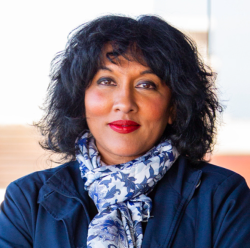2023 SOPHIA HOLLAND LECTURE
Graduate Women-NSW has held an annual Sophia Holland lecture since 1998. This is because Marjorie Murray, whose generous bequest provides the funds which enable us to have an office in the city and employ our Office administrator, requested in her will we acknowledge her mother Sophia Holland.
Sophia Rachel Brown was born on 30 July 1871 to William Brown, a 30 year old shipwright, and Sophia Elizabeth Johnson, aged 25. They lived in Terry Lane off Fort Street. Sophia matriculated in 1890 at the University of Sydney and began an Arts degree. She completed three courses in Latin, and probably also French and English. In 1891 she became an Evening student until she graduated in 1894. In 1898 (just before the Boer War), Sophia married George Henry Holland. Marjorie was born the following year.
To help us carry out Marjorie’s wishes this year Professor Raina MacIntyre presented the Sophia Holland lecture on 7th July.
Prof Raina MacIntyre is well known to us all from her TV contributions during Covid helping us cope with the restrictions and uncertainties. She is NHMRC Principal Research Fellow, Head of the Biosecurity Program at the Kirby Institute, and Professor of Global Biosecurity at UNSW. As well she is an international leader in emerging infections, and is involved in research on face mask, vaccines, influenza, COVID-19 and other infectious diseases, research studies that directly inform national and international policy.
Her lecture covered her life and how she reached her present position, a bit about bioterrorisz, and an update on the continuing risks of COVID-19, and the place of vaccine boosters, effective masks and specific nasal sprays. She explained why she now refuses to give media interviews particularly after the rejection of her research evidence about the value of masks. It was a bit disappointing that numbers participating were not more – guests almost outnumbering members – but a firm reminder of all those experts we have relied on for information during the pandemic.

